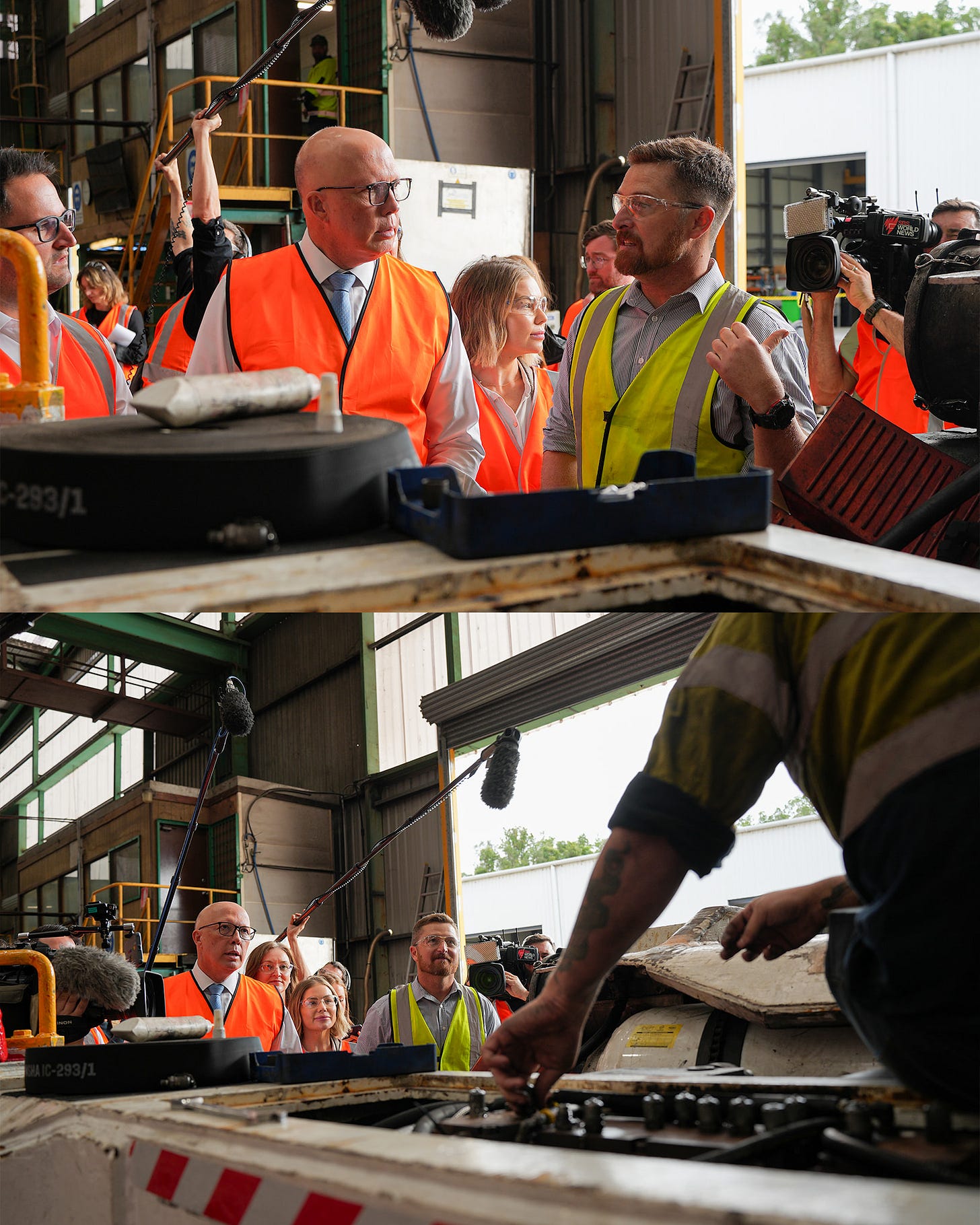📰 Opposition Leader Peter Dutton has criticized Australia's government's energy policies during the first week of the federal election campaign. He argued that Labor has created economic hard
Opposition's nuclear power vision clashes with government's renewable focus as energy policy becomes central election battleground affecting industrial regions.
Australia's election campaign revolves around a key energy policy difference, with Opposition Leader Peter Dutton offering a choice between his coalition's nuclear-and-gas strategy and Labor's renewables-focused plan.
Dutton asserted that his nuclear plan would cost "44% less" than Labor's renewables approach, while cautioning about the impact of current government policies on industries like aluminium smelting.
Energy security has emerged as the primary economic focal point, with both major parties detailing their plans to achieve lower prices and meet climate goals through their different approaches. Dutton's visit to Newcastle's Tomago Aluminium smelter underscores the critical role of manufacturing centers in this discussion. The coalition seeks to safeguard industrial jobs while voicing opposition to offshore wind projects suggested for the Hunter coast.
Key Points:
Nuclear Power Plan: Coalition proposing nuclear reactors at retiring coal plant sites, claiming strong local support based on by-election results
Industry Concerns: Dutton warning that Tomago Aluminium's future is "under threat" from Labor's energy policies, positioning coalition as defender of manufacturing jobs
Cost Comparison: Opposition citing economic modeling claiming their energy approach is "44% cheaper" than Labor's plan, a figure the government disputes
Local Opposition: Coalition opposing offshore wind farms along Hunter coast, claiming tourism and fishing industries would be "in peril" if projects proceed
Why It Matters
The energy policy gap reflects distinct views on Australia's economic and environmental future, one focusing on economic growth and industrial continuity, the other on environmental sustainability and climate objectives.
The opposition's strategy of nuclear-and-gas highlights base-load power and industrial continuity, whereas the government's focus on renewables prioritizes climate goals and the shift to new energy systems. In energy-intensive regions like the Hunter, this election may decide the fate of traditional industries, determining if they can survive or need significant changes. How can voters navigate the competing expert claims about cost, reliability, and environmental impacts in the complex energy debate?
The Bottom Line
Australia's energy future is at a crossroads as voters consider conflicting visions from major parties. The opposition is betting that concerns about energy security, industrial viability, and immediate cost-of-living pressures will outweigh climate transition goals due to the immediate impact on livelihoods and economic stability.
For communities dependent on energy-intensive industries like aluminium smelting, the stakes couldn't be higher – these competing policies could determine whether their economic foundations remain viable or require fundamental transformation. With the campaign escalating, anticipate a stronger emphasis from both parties on energy costs, where the coalition stresses immediate relief and Labor champions a long-term vision.
Got a News Tip?
Contact our editor via Proton Mail encrypted, X Direct Message, LinkedIn, or email. You can securely message him on Signal by using his username, Miko Santos.
More on Mencari
5 - Minute recap - for nighly bite-sized news around Australia and the world.
Podwires Daily - for providing news about audio trends and podcasts.
There’s a Glitch - updated tech news and scam and fraud trends
The Expert Interview - features expert interviews on current political and social issues in Australia and worldwide.
Viewpoint 360 - An analysis view based on evidence, produced in collaboration with 360Info
Mencari Banking - Get the latest banking news and financials across Australia and New Zealand
The Mencari readers receive journalism free of financial and political influence.
We set our own news agenda, which is always based on facts rather than billionaire ownership or political pressure.
Despite the financial challenges that our industry faces, we have decided to keep our reporting open to the public because we believe that everyone has the right to know the truth about the events that shape their world.
Thanks to the support of our readers, we can continue to provide free reporting. If you can, please choose to support Mencari.
It only takes a minute to help us investigate fearlessly and expose lies and wrongdoing to hold power accountable. Thanks!





